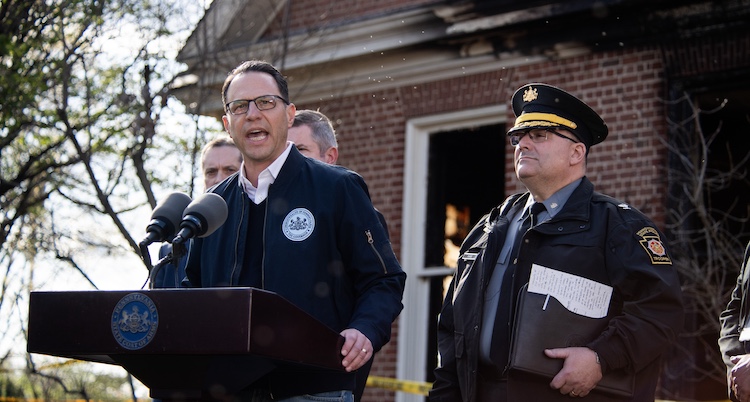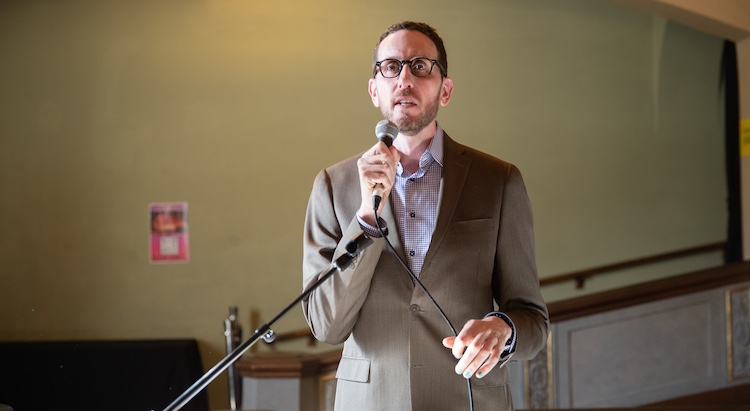In focusing on America’s rising rates of violent crime leading up to the midterm elections, Republicans were routinely accused of playing a dirty trick on voters.
“We don’t really have a common definition of what crime means,” crime-statistics analyst Jeff Asher asserted in an October interview with NPR. Apparently, the range of activities that constituted a violation of statute made it difficult to discern what voters meant when they said “crime.” And when “crime” wasn’t a nebulous concept that eluded the unsophisticated, it was cast as a problem presided over by Republicans. “Research has repeatedly shown that crime is rising faster in Republican, Trump-supporting states,” wrote Clinton-era Labor Sec. Robert Reich. It certainly wasn’t rising in cities led by lenient progressive prosecutors, as the Atlantic’s Ron Brownstein noted, citing the entirely dispassionate research produced by the Center for American Progress. Indeed, violent crimes such as homicides and rapes were down in 2022, according to the FBI’s midyear survey. “Violent crime is not soaring,” Washington Post columnist Dana Milbank asserted. “In fact, it might be declining.”
These formless arguments orbit around one animating imperative: Neutralize the crime issue. In no less a venue than the Associated Press, a mid-2021 article previewed this approach by castigating the GOP for failing to make sufficient note of (at the time) declining rates of drug offenses and burglaries while recklessly emphasizing your increased risk of being murdered by a stranger. The GOP was deploying “a new twist on an old ‘law and order’ argument from the party’s past, harkening back to President Richard Nixon.” The GOP failed to make note of the “complicated reasons for fluctuating crime rates” in 2020 and early 2021, such as the “protests that erupted after the killing of George Floyd by police”—which were accompanied by a lot of crime and a muted response from law enforcement.
Now that the election has passed, the truth can be told. Indeed, the truth was lacking only in one vital attribute: an angle.
“Crime statistics tell a more complicated story,” the New York Times reported on Sunday. “Incidents of major crimes are higher in New York City and Nassau County than before the pandemic,” the report stated. “In Westchester, Suffolk, and Rockland counties, major crime has been flatter, though in the first six months of this year, property and violent crimes were up compared with the same period in 2021.” For this reason, Democratic strategists concede New York state’s pronounced shift to the right “was about crime.” Doesn’t seem very “complicated” at all.
The Times isn’t alone here. “During the last three years, homicides nationwide have reached their highest levels in decades,” a deeply reported feature published this week in the Washington Post began. “Victim data collected from each city profiled here show Black people made up more than 80 percent of the total homicide victims in 2020 and 2021. And while data show gun deaths have surged around the country, a number of cities lead the way.”
The Post’s focus on violent crime’s most frequent targets, African Americans, is overdue. Pre-election polling consistently found that America’s black voters regarded crime as a determinative factor in how they would vote. That was wildly out of step with the broader Democratic Party, to which black voters have traditionally gravitated. “While 82% of Black Democratic voters say violent crime is very important to their vote this year,” a pre-election Pew Research Center dispatch read, “only a third of White Democratic voters say the same.” This year’s midterm exit polling conducted by CNN confirms that black and Hispanic voters regarded crime as a more acute influence on their vote than their white counterparts.
In days of old, being casually dismissive of an issue that disproportionately impacts America’s minority population was regarded as a display of callousness, ignorance, or even racial hostility. Democrats are fortunate that, in this case, we can chalk their misapprehension up to bad data.
As many pre-election reports on the incomprehensibility of crime dutifully noted, the FBI’s statistics this year aren’t especially reliable. The FBI began collecting crime statistics last year exclusively via the National Incident-Based Reporting System, to which individual departments may or may not submit their data. Many failed to participate. Thus the statistics the nation relied upon to get an accurate assessment of America’s violent crime rates lacked input from more than a third of American departments, including those in major urban centers such as New York City and Los Angeles.
Insufficient data does not prevent keen observers from drawing conclusions about crime rates from the abundant anecdotes—from California’s crackdown on homelessness to New York’s effort to flood the subways with uniformed officers. Indeed, there’s a reason that Republicans arguably owe their narrow House majority to the suburbs and exurbs of these two cities. And although Democratic support among minority voters didn’t implode in 2022, Politico observed that “Black and Hispanic support for Democrats dipped to similarly low levels in the late 1990s.”
“So the public’s level of concern about crime does seem to reflect real-world conditions,” New York’s Eric Levitz conceded this week, “at least to a degree.” Though he lashed out at media outlets for determining how “politically salient fear of crime becomes,” he acknowledged that crime “is a genuine problem” that contributed to an even bigger problem: the GOP’s control of the House. Levitz has consistently admonished his co-partisans for downplaying crime rates, which disproportionately affect black Americans and empower their political adversaries. But there’s little appetite for self-reflection among Levitz’s Democratic counterparts.
Writing in the Washington Post, Nation editor Katrina vanden Heuvel advises Democrats to “not panic.” Progressive prosecutors and their allies “fared well nationwide.” There was no exodus of minority voters, who “see criminal justice reform as a priority” and are more apprehensive toward police than white Americans. Democrats “don’t have to attack progressives or compete with Republicans on locking people up,” and they should “stop echoing Republican fearmongering.” Old narratives die hard.




